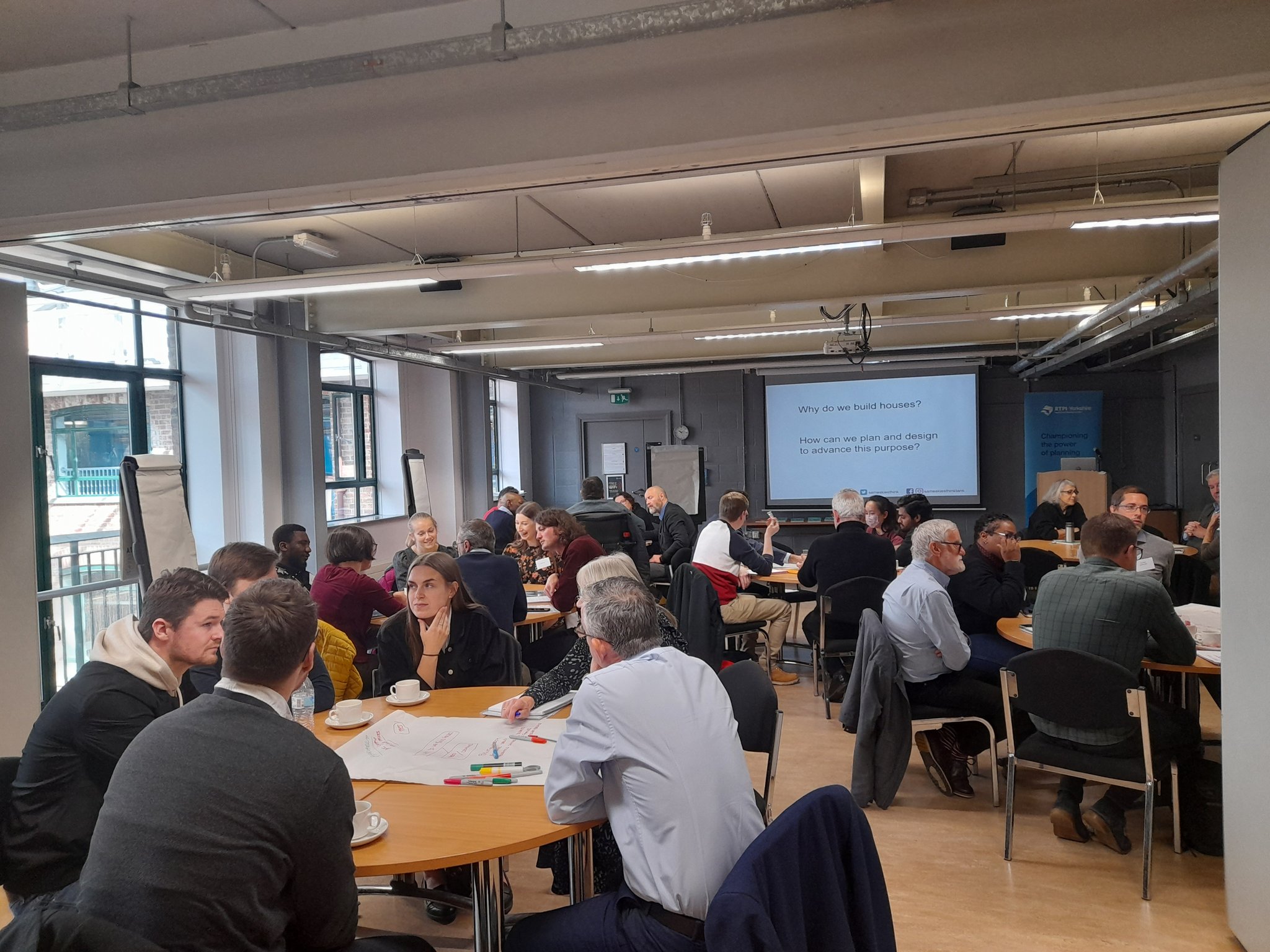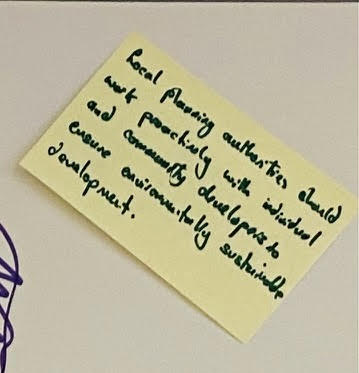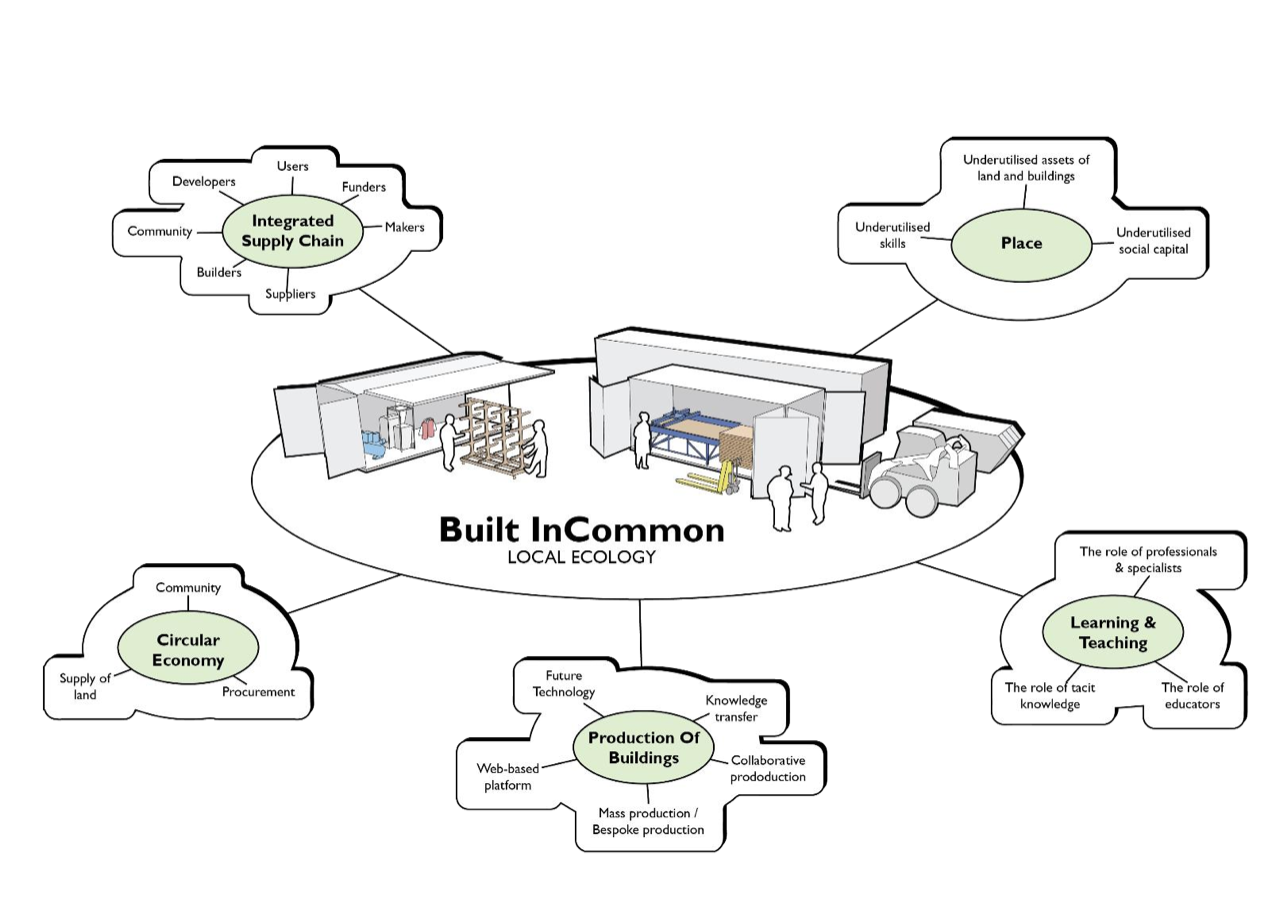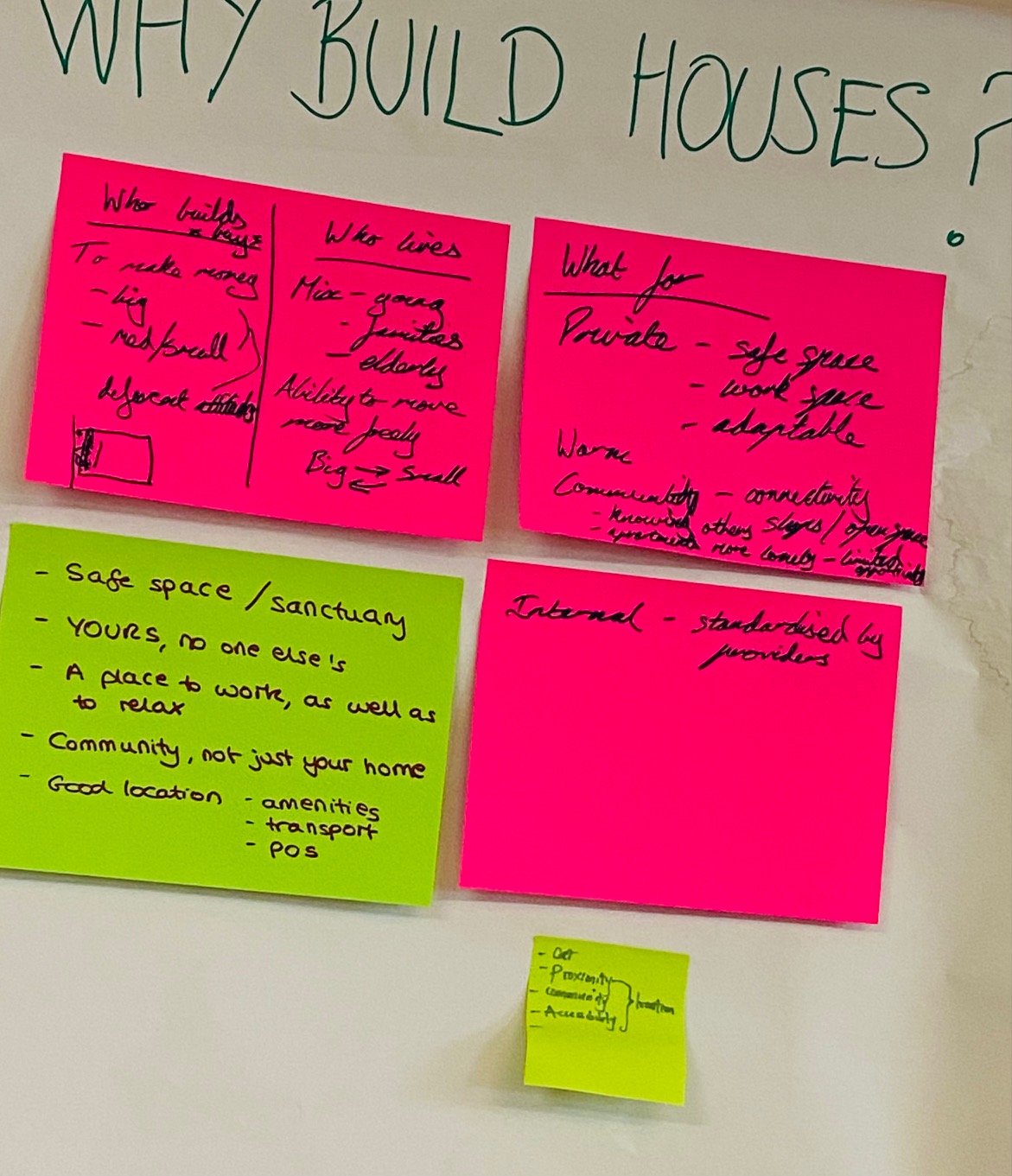Are Planners More Important Than Doctors?

In the rush of daily life when we all get caught up in the dash of uncertainty, it is professional planners who are the ones trained to look for rationality, provide strategy and implement societal and environmental change in an ordered manner. In the words of Dr Ruth Gelletlie it is planners that stand at the source of this river of change; doctors merely picking the bodies out of the waters below; making planners more important, in her opinion, than doctors in securing the health of the nation.
Dr Ruth Gelletlie warned that deep health inequalities and ineffective policies mean that people in the poorest parts of our towns and cities are living much shorter lives. She advocates that we must “build back fairer”.
This wisdom and much more besides was the value provided for planners and other professionals in Leeds earlier this week who were fortunate enough to attend the RTPI Yorkshire/Same Skies workshop Planning & Housing in West Yorkshire: An Alternative Approach.

Same Skies, whose mission in part is to share ideas and activities between people and places in West Yorkshire for our common good, have recently produced an alternative housing and planning manifesto, part of their AMPlify West Yorkshire initiative, with the aim of helping the Mayor, Tracy Brabin take a collaborative approach to her regional planning responsibilities. The initiative aimed at involving communities in order that they fully participate in, and collaborate with, the development of a planning framework and housing strategy inclusive of all needs and aspirations. This represents a very bold and ambitious aim indeed. This workshop was, in part, a process by which professional planners might take a fresh look at how they can contribute as individuals and collectively to help fulfil these ambitions.
For the unique starting point of the AMPlify West Yorkshire process, a series of open walks available to all were arranged around a number of places and by posing the question: what kind of region do we want to live in? This tool provided an invaluable kick start to the collaborative process, according to Tiffany Holloman and Andrew Wilson, co-directors of Same Skies.

Providing homes and communities is not a priority in a market driven economy; whole slices of society get side-lined or disregarded all together and place standards are aimed at the lowest common denominator. Publicly the only regulation acceptable to market housebuilders would appear to be the 5-year housing supply that has dominated and distracted the planning system for the past 15 years. A decent home for all must be the democratic right, was the challenge set out by Neil McKenna, an urban planner and researcher in this area.
Claude Hendrickson, a Leeds Self-Build Strategy Consultant, accredited Community-led Housing adviser and Community Land Trust ambassador who has advised the UK government via the Bacon review on self-build, described how the community-led approach creates communities as well as providing housing, and this can complement the other types of housing provision: private developers, local authorities and housing associations. Claude reported that People Powered Homes, the Community Led Housing enabler Hub for West & South Yorkshire, is advocating for Homes England and local authorities to ring fence part of their budget to spend on community-led housing. This ring-fenced funding would pay dividends in terms of community development and cohesion, placemaking, and skills training and employability among other benefits.
The social value of the circular economy advocated by Irena Bauman is illustrated in her work on 20 minute neighbourhoods undertaken throughout Yorkshire. Irena is passionate about community engagement which has yielded much insight and many advantages for neighbourhood planning, especially amongst young people, who are much clearer about the future they want to inherit and create than is often recognised. It is simply a question of engaging them. She claims, with much justification, that the “evidence led” approach to the planning system stifles community engagement and innovation by restricting their ability to advocate for true environment and social benefit. This is particularly so for community led development which cannot afford the mass of evidence often erroneously claimed that is required to front load projects.

Workshop Sessions
Innovation and inspiration were well provided in the workshop sessions. As a starting point for alternative thinking, participants were asked to consider why we build homes and how can we plan and design to facilitate community collaboration.
Classic quotes from the lively workshop sessions include; who owns the process (of house building) and do we build homes for the right people? Also, a safe space - a sanctuary; a community, not just your home. These and many more provided the day with a powerful interactive way to involve the audience, engage with the issues and collaborate with expert speakers to our mutual benefit.
Where to From Here?
The themes of the day were summed up by Richard Wood, a Yorkshire Planning Consultant working across the UK; Engagement, Vision, Placemaking, Planning and Strategy. Importantly he challenged delegates to act immediately on what they had learnt and to:
-
Act differently
-
Not to wait for the system changing
-
THINK – about what and why we do things
-
Make a change – and do it right away For You
This is a personal view reflecting my own “take outs” for the day. However, for the RTPI and Same Skies, any evidence, from delegates or beyond, that some of the AMPlify manifesto messages are getting through and taking root in practice would be welcome. We are all urged to seek these out – and PLEASE let us know how you get on.
Bob Wolfe
April 2022
AUTHOR’S NOTE: please feel free to use this text in any way you feel appropriate
Book Review: The Rentier City by Isaac Rose reviewed by James Fishwick
The Rentier City - Manchester and the making of the Neoliberal Metropolis by Isaac Rose is a more than thorough history of the industrialisation of Manchester …
How Can West Yorkshire Retain And Attract More Graduates?
This winter, Same Skies held a discussion group about how West Yorkshire can successfully retain and attract more graduates. 24% of all graduates live in …
Keighley Market - our neighbourhood, our regional democracy.
From the very beginning, Same Skies has been about building Regional Democracy up from the good stuff around us here. We are our own region …
